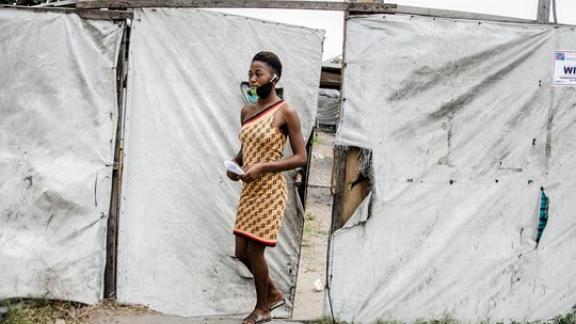After Ruth’s parents divorced a few years go, the rest of the family members, including Ruth, barely into her teens, soon went their separate ways. She found herself in the Pakadjuma neighborhood in Kinshasa where she rented a small house. Even though she wanted to continue with her studies, she could not afford the school fees.
Not long after, Ruth became involved in a relationship. Her boyfriend helped her pay her rent. She soon fell pregnant.
“By the time I discovered I was pregnant, I was it was too late to get an abortion and I didn’t want to put my life in danger. I would have liked to study and attain a bachelor's degree, but I don't regret it anyway. I loved my child right away."
Ruth, now aged 19, like other young girls in Pakadjuma goes to the Association pour le Bien-Etre Familial – Naissances Désirables (ABEF-ND) clinic to learn about family planning. She still hopes to pursue her education. Thankfully, her partner encourages her to go back to school.
Some of ABEF-ND’s activities are supported by the Women’s Integrated Sexual Health (WISH) programme. The programme offers quality integrated sexual and reproductive health services across the Democratic Republic of Congo through IPPF's Member Association in the country, Association, ABEF-ND.
At ANBEF-ND, some of the young girls sign up directly to take contraceptives. Others promise to return after they have discussed with their partners.
Ruth’s baby is just eight months old, and she would like to delay her next birth. She is counselled by the ABEF-ND healthcare worker on the different family planning methods. She favours the three-month injectable.
“I asked the nurse many questions about it the injectable, and she assured me that it would help prevent pregnancy for the next three months. She also said that if I wanted to renew it again, I could.”
Parental involvement
As a young woman, Ruth believes that parents have a big role to play in the prevention of negative sexual outcomes in their children.
“Many parents do not discuss sexual matters with their children because they find it to be inappropriate. Yet, it is a necessary conversation. When adolescent girls get pregnant, it affects their future, most of the time negatively. Some of these situations could be avoided if they were offered proper guidance and counselling by their parents," she says.
when











